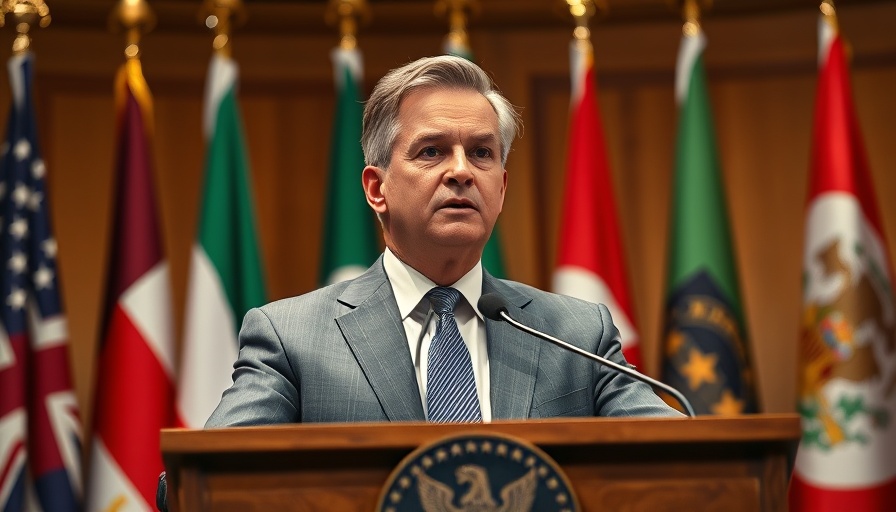
The Crucial Crossroads in U.S.-Iran Relations
As President Trump’s administration navigates a treacherous landscape filled with diplomatic tensions and escalating military postures, the stakes have never been higher for U.S.-Iran relations. The dual pathways of diplomacy and military intervention raise profound questions about the effectiveness and consequences of each approach. The looming potential for conflict stands at odds with calls for negotiation, presenting a stark choice for the administration that could shape not only the Middle East but also global political dynamics.
Historical Context: The Iran Nuclear Deal and Its Fallout
Understanding the current situation requires a look back at the history of the Iran nuclear agreement, formally known as the Joint Comprehensive Plan of Action (JCPOA). Initially signed under President Obama, the deal aimed to limit Iran's nuclear capabilities in exchange for easing economic sanctions. However, the U.S. withdrawal in 2018 under Trump marked a significant shift, reigniting fears of proliferation and destabilizing the region further. The subsequent years saw Iran inching closer to its nuclear ambitions, prompting urgent calls from global leaders for renewed diplomacy.
Voter Perspectives: How Public Opinion Shapes Policy
Domestic opinions significantly affect the foreign policy decisions regarding Iran. A recent poll shows that many Americans prefer diplomatic solutions over military action. This public sentiment impacts congressional discussions and influences the legislative approach towards Iran, with Democrats advocating for cautious diplomacy while Republicans often push for a more aggressive stance. The disparity highlights the polarized views within U.S. politics, where both major parties seek to align their foreign policies with the expectations of their constituents.
The Role of Congress: Striking a Balance
As President Trump evaluates options, the role of Congress in foreign policy becomes increasingly relevant. The legislative branch holds the power to declare war and set budget limits on military actions. This creates an avenue for bipartisan discussions surrounding military support and sanctions—crucial elements in addressing Iran. However, with a divided Congress, chances for a unified strategy remain uncertain, fueling discussions about partisan divides on how best to approach Iran.
The Military Option: Risks of Conflict Escalation
While proponents of a military approach argue that a strong stance could deter Iranian aggression, this method comes fraught with peril. Historical precedents show that military interventions can lead to prolonged conflict and unintended consequences, exacerbating tensions even further. As regional players like Israel, Saudi Arabia, and Russia weigh in, the potential for escalation underscores the importance of a calculated diplomatic strategy that prioritizes long-term stability over immediate, misguided actions.
Future Insights: The Path Ahead for U.S.-Iran Relations
Looking forward, the need for a coherent strategy addressing both military readiness and diplomatic initiatives is crucial. The evolving landscape means that decisions made today could resonate significantly in the coming years, particularly with the upcoming presidential election. Should Trump’s administration successfully engage Iran through negotiations, it may pave the way for renewed international alliances and stability in the region. Conversely, failure to address these issues responsibly could lead to the intensification of longstanding conflicts, eliciting further military buildup and fear among surrounding nations.
Conclusion: Call for a Thoughtful Approach
In the complex arena of U.S.-Iran relations, the interplay of diplomacy and military action presents a delicate balancing act. As professionals in global affairs, political strategy, and diplomacy reflect on these pivotal moments, it’s imperative to advocate for informed discussions rooted in historical understanding and bipartisan support. The evolution of U.S.-Iran relations will undoubtedly affect both national security and global dynamics in the years to come. Engage with your local representatives to express your views on how the U.S. should approach Iran, emphasizing the value of diplomacy as a means to maintain peace and security.
 Add Row
Add Row  Add
Add 




Write A Comment